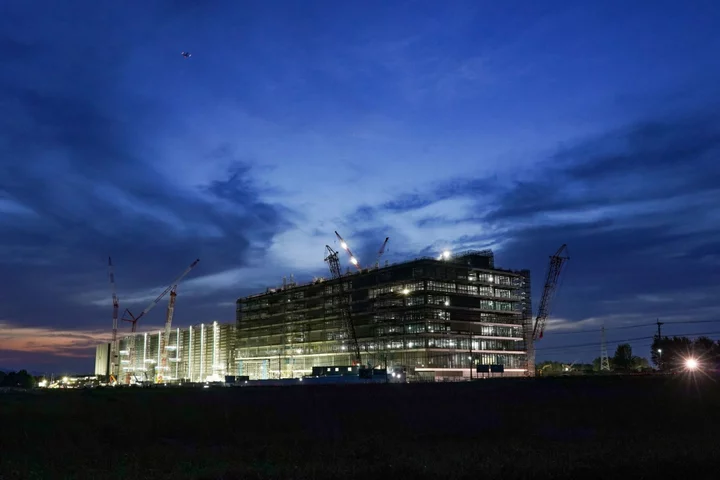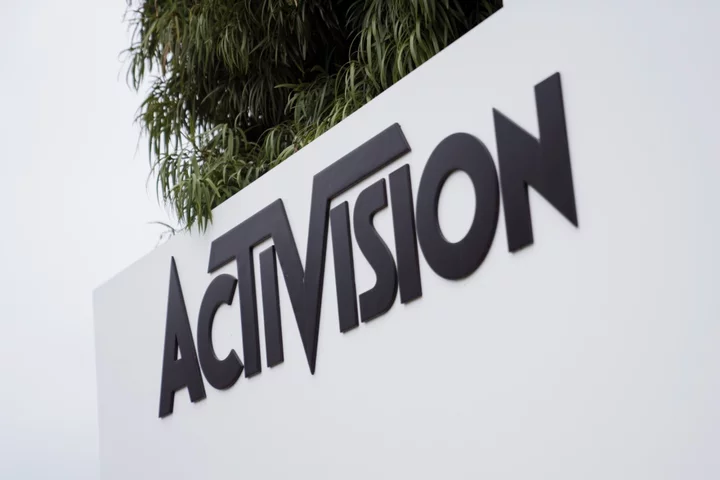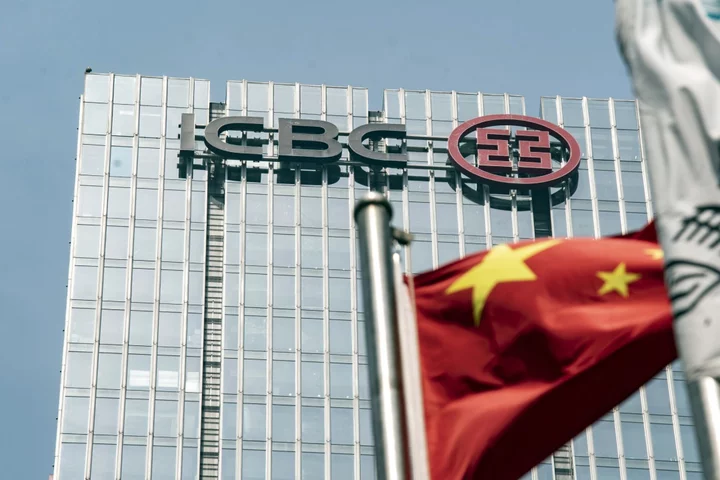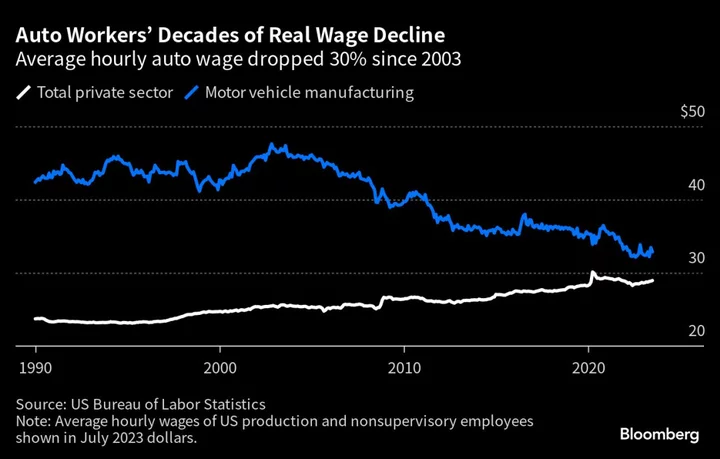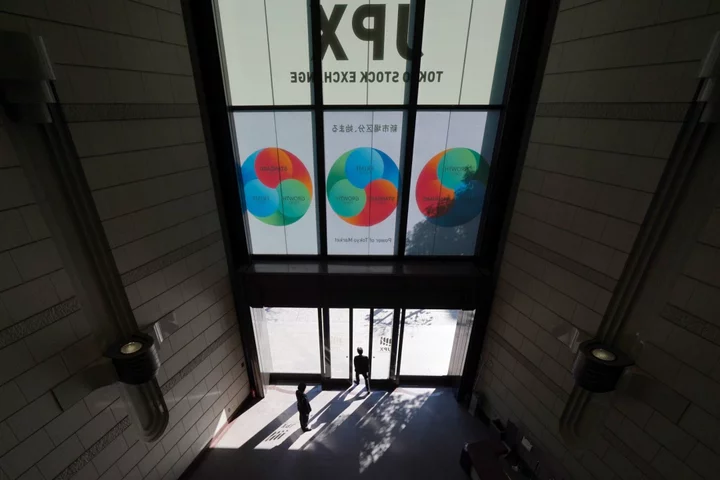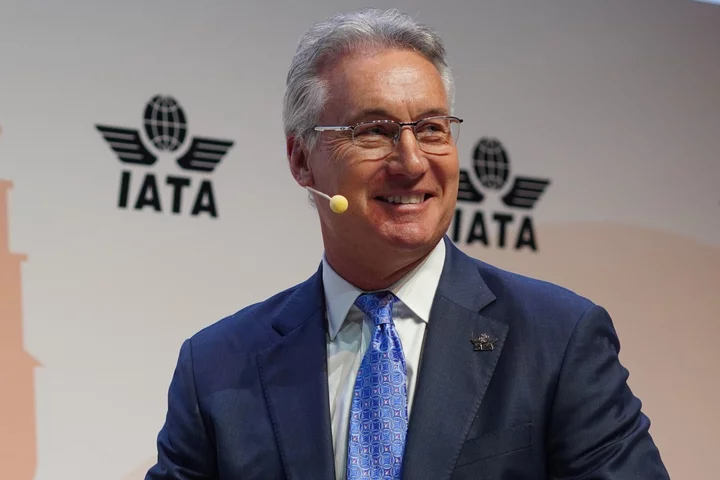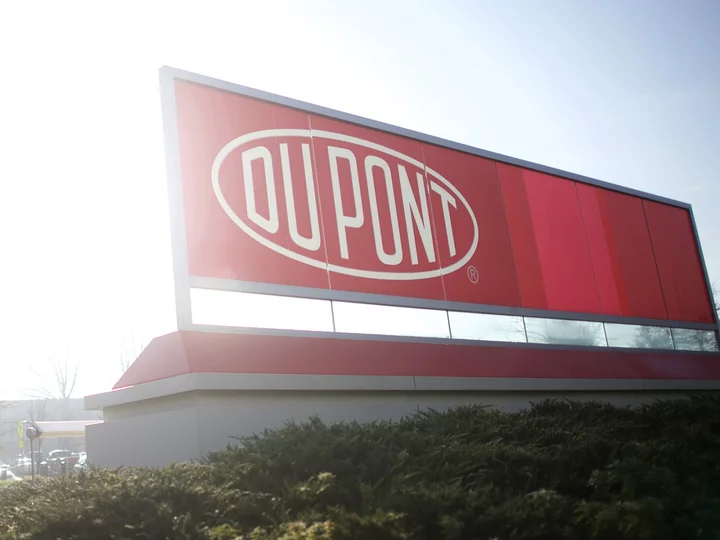Taiwan Semiconductor Manufacturing Co. is considering building a third plant in Japan that would make advanced 3-nanometer chips, according to people familiar with the matter, potentially turning the East Asian nation into a major global chipmaking hub.
The go-to chipmaker for Nvidia Corp. and Apple Inc. has told its supply chain partners it’s mulling construction of a third factory, code-named TSMC Fab-23 Phase 3, in the southern Japanese prefecture of Kumamoto, the people said, asking not to be named as the information is not public. TSMC is in the process of building one fab in Japan for less advanced chips, and plans for a second facility have been reported earlier. It is unclear yet when the company would start construction of the third fab.
The 3nm process is the most cutting-edge chipmaking technology commercially available right now, though by the time TSMC’s potential fab is up and running, the technology would likely to be one to two generations behind that. If the plan is realized, it would be a major win for Japan, where Prime Minister Fumio Kishida’s administration has been providing trillions of yen in subsidies to lure investments from domestic and foreign semiconductor companies.
In addition to TSMC, Tokyo has successfully secured investments from Micron Technology Inc., Samsung Electronics Co. and Powerchip Semiconductor Manufacturing Corp. Japanese officials are also helping domestic startup Rapidus Corp. set up production lines for cutting-edge 2nm chips in Hokkaido.
Tokyo has moved more quickly in building up a domestic semiconductor ecosystem than Washington, which is also trying to build domestic capabilities for economic and national security reasons. The Japanese government has handed out subsidies to firms while the Biden administration has yet to distribute a dime to any company from the Chips and Science Act that earmarked more than $50 billion for the semiconductor industry.
A 3nm fab is likely to cost about $20 billion, including the machines for production, although precise expenses would depend on when the facility is built and how it acquires land and other materials. It’s not yet clear how much TSMC anticipates spending on the third fab. Japan typically covers about 50% of the costs of such facilities.
“TSMC is investing where necessary to support customers needs,” the company said in an emailed statement. “In Japan, we are currently focused on evaluating the possibility of building a second fab and we do not have further information to share at this time.”
While few Japanese companies now need the most advanced chips, the country will soon require those for next-generation technologies, including artificial intelligence applications and autonomous driving. Japan’s economy will face significant risks if the country relies completely on foreign imports for these critical components, local officials have argued.
Read: Kishida Meets Chipmakers to Bring More Production to Japan
TSMC is currently building a plant in the Kumamoto prefecture, with investments from Sony Group Corp. and Denso Corp., that is expected to start making chips as advanced as 12nm in late 2024. TSMC will also build a second fab, close to its first plant in Kumamoto, that is expected to start making 5nm chips in 2025, according to some of the people.
When TSMC first planned to create a manufacturing presence in Japan, its initial blueprint included multiple plants so it could best utilize ancillary facilities it has to build for its campus in Kumamoto, according to the people. The Taiwanese chipmaker may even build a fourth plant, possibly located in a prefecture to the north of Kumamoto due to a shortage of land, several of the people said.
Japan’s expertise on chip materials and machinery makes the country an attractive location for TSMC’s expansion, according to Joanne Chiao, an analyst with Taipei-based research firm TrendForce.
“Japan’s critical role in semiconductor and raw materials, combined with collaboration with Sony, offers compelling advantages for TSMC as its investment in the country is expected to help with its access to advanced materials and specialized image sensor technologies,” she said.
In return, Japan will benefit significantly from TSMC’s presence. The gross domestic product of Kyushu region, which includes Kumamoto, is estimated to expand to 75 trillion yen ($496 billion) in 2035 from the current scale of 50 trillion yen, according to SMBC Nikko Securities analyst Ryosuke Katsura.
In addition to Japan, TSMC has also pledged to build two plants in the US and one in Germany as its customers want more diversified supplies in the face of growing uncertainties in the Taiwan Strait.

